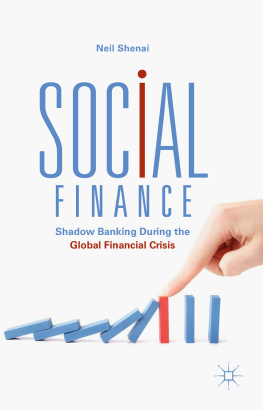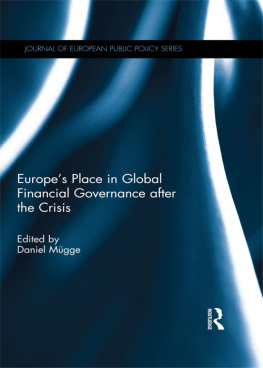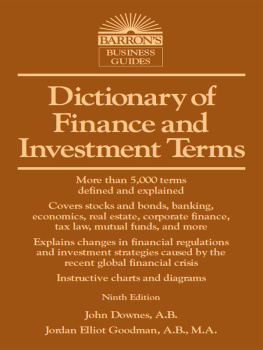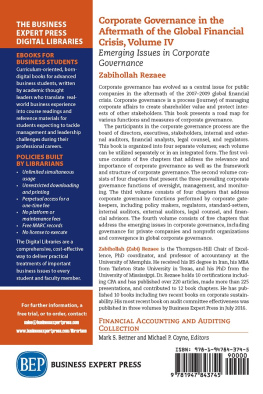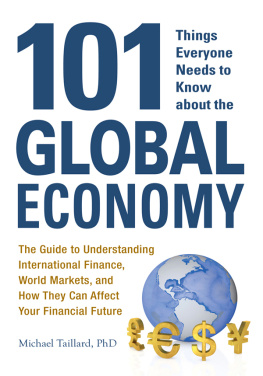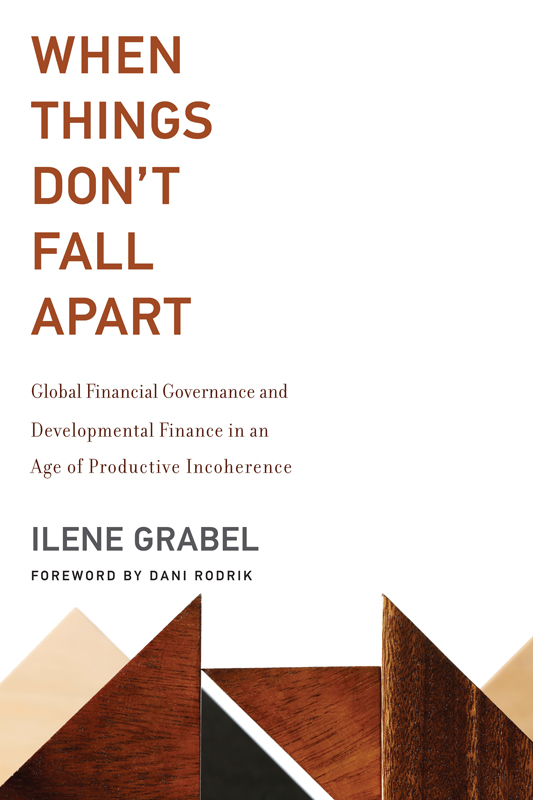All rights reserved. No part of this book may be reproduced in any form by any electronic or mechanical means (including photocopying, recording, or information storage and retrieval) without permission in writing from the publisher.
This book was set in Stone Serif by Westchester Publishing Services.
Printed and bound in the United States of America.
Names: Grabel, Ilene (Ilene J.), 1963 author.
Title: When things dont fall apart : global financial governance and developmental financial in an age of productive incoherence / Ilene Grabel ; foreword by Dani Rodrik.
Description: Cambridge, MA : MIT Press, [2017] | Includes bibliographical references and index.
Identifiers: LCCN 2017020443 | ISBN 9780262037259 (hardcover : alk. paper)
Subjects: LCSH: Development economics. | International finance. | Financial crises. | Financial institutions. | Corporate governance. | Hirschman, Albert O.
Foreword
It happens only rarely and is all the more pleasurable because of it. You pick up a manuscript that fundamentally changes the way you look at certain things. This is one such book. Ilene Grabel has produced a daring and delightful reinterpretation of developments in global finance since the Asian financial crisis of 19971998.
The book addresses, and resolves, a long-standing puzzle: Why has our present model of financial globalization been so resilient, despite an abysmal track record that includes the most severe global financial crisis since the Great Depression, recurrent sovereign debt crises (in Latin America, East Asia, Russia, and Turkey), and many other disappointments (such as capital flowing uphill from poorer to richer nations)? How is it that we have not jettisoned this model for something that is more sensible and works better?
Professor Grabels insight is that those of us who were looking for signs of change have had the wrong idea about how real reform often happens. We have been mistaken in searching for evidence of wholesale, programmatic reconsideration of the rules of global finance. Systems of governance rarely change through established blueprints, a master plan, or radical reforms. And besides, such a reform path would suffer from the same kind of hubris that the neoliberal playbook produced.
Instead, she suggests, it is the cracks in the consensus, the local heresies, and the small departures and innovations that matter and lead us in an altogether novel direction. Inconsistency, ambiguity, and incoherence are useful and productivethey are a feature, not a bug.
Thus, Professor Grabel builds a case for a gradual, evolutionary change in the global financial system and argues that there is at least as much evidence for this alternative thesis as there is for the regime-continuity thesis. The Asian financial crisis may have given the IMF new powers, but it also set in motion defensive moves on the part of developing countries, such as self-insurance through reserve accumulation and mutual swap arrangements. The G-20 and Financial Stability Board may have been largely ineffective to date, but there are signs they can evolve into experimental, networked forms of global financial governance accommodating greater developing-country influence. The IMF itself has not been overhauled, but it has changed: it no longer treats capital controls as taboo, has distanced itself from austerity, and pays increasing attention to social safety nets. And look at the new institutions that have been createdregional reserve pooling arrangements, development and infrastructure banksand the forum-shopping benefits they confer to client states.
Put all of this together and we have what Professor Grabel calls a move toward a more complex, fragmented, and pluripolar direction in international financial governance, driven in large part by initiatives from below rather than from above. The evolving system is one that provides greater policy space, enables unscripted innovations, and makes pragmatic adjustments not dictated by an overarching scheme of economic organization.
The books deeper argument about how regimes really change is as interesting as the specific details of the case of international finance. Here looms the large figure of Albert Hirschman. As Professor Grabel is happy to remind us at every turn, her argument is very much a Hirschmanian one. Hirschmanian motifsthe advantages of improvisation, surprise, incrementalism, and pragmatismare all over the book.
But to say that the book owes a debt to Hirschman is to undersell it. The Hirschmanian perspective has rarely been deployed so well and to such great effect. The reason Hirschman never developed a school of thought, as he himself well recognized, is that his thinking did not lend itself to emulation and replication. The flashes of brilliance, the unexpected turn of argument, and the relish of paradox that characterized his style spawned admirers but not followers. But we have all of those in this book. Professor Grabel has produced not only an extensively researched book but also one that is tremendously fun to read.
My colleague Roberto Mangabeira Unger likes to say that universal orthodoxy cannot be defeated solely by local heresies; overcoming it requires a universalizable heresy. Professor Grabel disagrees, as would Albert Hirschman. She would be the first to acknowledge that the incremental innovations she discusses in the book do not, in her words, come close to displacing neoliberalism from top to bottom. But the neoliberal consensus is gone, the institutions that uphold it have become more agnostic and flexible, and new arrangements have sprung up. We do not yet know where the international financial system will end up. Professor Grabel says this is as it should be: enjoy the Hirschmanian moment, and keep your fingers crossed that sanity and common sense will prevail.
Dani Rodrik
March 2017
Preface
In January 2010, I presented a paper at a conference in Muttukadu, India. The event brought together heterodox development economists to discuss the implications of the unfolding global financial crisis across the global south and east. This was to be a friendly audiencelike me, most speakers had spent much of their academic careers as resolute critics of the global neoliberal model, the neoclassical model that sustains it, and the Bretton Woods institutions (BWIs) that enforce it.
I took the opportunity to present what was then, admittedly, a somewhat underdeveloped understanding of events emerging haphazardly at the BWIs themselves and across the so-called developing world. I argued that there were signs of meaningful though entirely inchoate change in aspects of global financial governance and, more specifically, in some of the institutions, norms, and practices that bore on policy space for development. As exhibit A, I cited what, just a few years into the crisis, appeared as surprising changes around the use of capital controls. As exhibit B, I cited the emergence of what appeared to be discontinuities and inconsistencies inside the International Monetary Fund (IMF) and in its relationships with some of its former clients. I argued that the developments before us were inconsistent with each otherfor instance, that for every step away from neoliberalism one could find evidence of a return to itthat these discontinuities and inconsistencies were limited in scope, ad hoc in their evolution, theoretically uninformed, and that some appeared to have greater rhetorical than practical force. But I argued that we should nevertheless pay attention to them. I suggested that we were witnessing cracks in the neoliberal edifice, even though no compelling alternative vision or locus of power had arisen to replace it. I speculated that we were entering a new periodindeed, a new kind of period, an interregnum, if you willmarked by incoherence and aperture in global financial governance.


